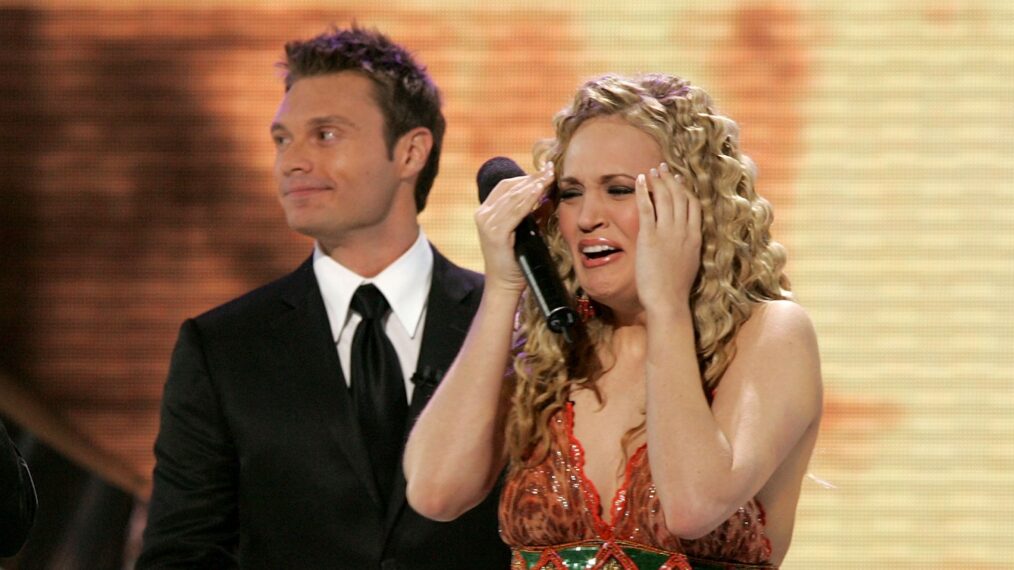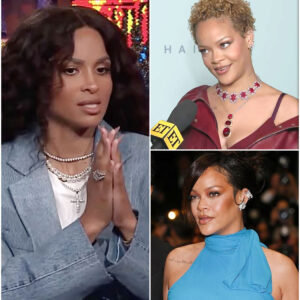How Much Do ‘American Idol’ Contestants Get Paid?
Early on contestants have to pay for their own transportation and clothes.

Disney/Eric McCandless
How Much Do ‘American Idol’ Contestants Get Paid?
Early on contestants have to pay for their own transportation and clothes.
American Idol, the preeminent singing reality competition series, has naturally evolved over the course of its 23 seasons. First premiering in 2002, it has outlived a brief hiatus, two networks, countless contestants and judges with various professional backgrounds and personalities.
But one of the most intriguing aspects of the show is its monetary machinations, namely what and how contestants are paid. Given that auditioners must take time out of their day-to-day lives (and jobs) to perform for a chance at musical stardom, it’s worth parsing through what they get in return — aside from exposure on national television.
As Season 23 comes to a close and this year’s judges Luke Bryan, Lionel Richi and Carrie Underwood get ready to crown a new winner, let’s take a look at just what these contestants are getting out of the experience.
Do American Idol contestants get paid?

Yes and no. Per previous contestant Margie Mays, who competed in Seasons 17 and 18, contestants aren’t paid until they make it to the live rounds, midway through the season. She said in a 2020 TikTok that she was paid to appear in commercials for the show and, later on, received compensation when Idol flew her and others out to Hawaii, during which she also got a per diem.
“But they’re not paying you to be a contestant. That’s the sacrifice you make to try to win,” she said. “So try to make it to the end.”
So, for the Top 24, SAG-AFTRA pays each contestant a performance fee of $1,571 plus meals for two-hour Idol shows, $1,303 for one-hour shows and $910 for half-hour results shows, figures that have likely changed since Fox Business reported them in 2016. Each contestant must also pay to join the union.
Do American Idol contestants have to pay to audition for the show?
In another TikTok, Mays said the show will arrange for travel, hotel stays and meals during Hollywood Week. “But in regards to paying for anything, you don’t need to buy anything during Hollywood Week. They’re not paying you money, but they are paying for your expenses,” she said.
Season 7 winner David Cook echoed that sentiment, telling Business Insider in 2022 that people were often shocked to hear that his on-screen audition for judges was indeed his fifth round after multiple initial screenings — all of which he had to put his own money down for, flying between auditions.
“Once you get to Hollywood Week, they put you up in, cover flights and all that, but yeah, for the city auditions segment, you’re on your own pocket,” he told the publication.
Other contestants like Season 15 runner-up La’Porsha Renae and Season 3 second place finisher Diana DeGarmo also had to traverse long distances to make it to the auditions. The former made a near 30-hour drive to Rhode Island, while the latter flew from Georgia to Hawaii to make it to city auditions before the tour closed ahead of her season.
Accordingly, that means walking away from schooling, work or other life responsibilities to compete on the show. Season 9 runner-up Crystal Bowersox told Insider that producers barred competitors from taking on outside gigs amid filming. “Telling me that I couldn’t perform? That was my sole source of income,” she said, adding that she found a way to perform under an alias to avoid disqualification.
As Richard Rushfield, author of American Idol: The Untold Story, told Fox Business previously, “What the TV audience doesn’t see is, if you’re from San Diego and you audition and make it through in St. Louis, then you have to return to St. Louis a month or two later for the next round, and then again for a third round. Some can’t afford to and drop out.”
But for some, the gamble pays off. David Archuleta trekked from Salt Lake City to San Diego, while Jordin Sparks flew from Arizona to Seattle; they made $1.4 million and $1.8 million from 2009 to 2010, respectively.
Since 2020, part of the initial screening process has been made virtual via Zoom, social media or other live video elements. However, per the show’s guidelines, and as mentioned, singers who receive a callback must arrange their own travel.





